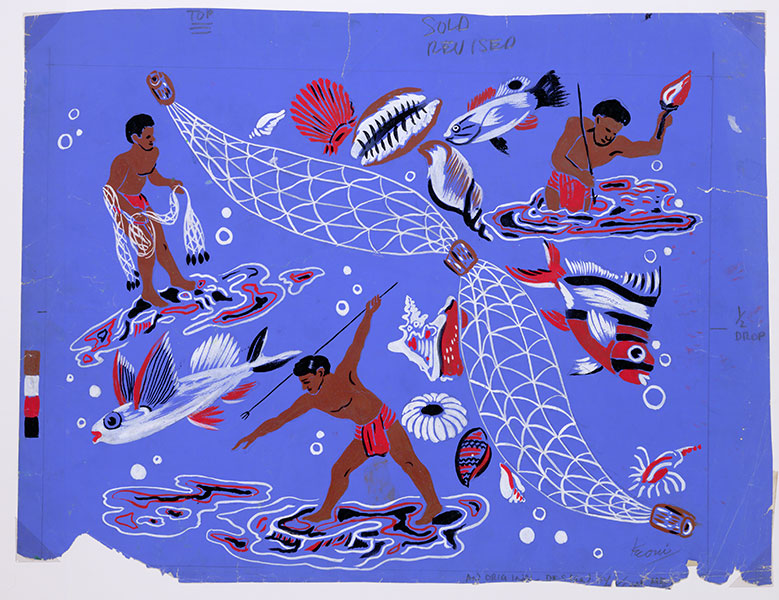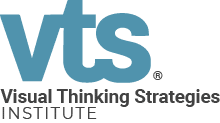
VTS / Learning Milestones and Research (February 2025)
What does learning, or success, look like in a VTS discussion? How do we know if the image discussions are working? How do educators set goals for open-ended discussions? What makes learning stick? Curious about the visual cognition, or Aesthetic Development, research that grounds VTS? Wonder why we ask such specific questions?
In this workshop we take a closer look at VTS practices, viewer comments, and the connection to foundational research. You’ll leave with tools to enhance your facilitation, listen for and track progress in VTS discussions, more fully appreciate early learning, and better meet the needs of your groups.
Four decades of research demonstrate that skills acquired in VTS discussions transfer widely to other areas – including math, data visualization, medical diagnoses, observation, the capacity to work in groups, the ability to disagree, language acquisition, writing, reasoning, curiosity, empathy, among others. Talking about art is not typically associated with broader learning: how do we understand what is happening? What are we learning in VTS?
VTS was built from research done by Dr. Abigail Housen in the 1970s-1990s. She recorded thousands of interviews, from viewers’ who rarely looked at art through those who had spent a lifetime doing so. Comment by comment, Housen mapped out, what she called, aesthetic development, from its beginning. Her work serves as a field guide to visual learning as it blurts out of our mouths.
The power of VTS to build widely used skills, suggests that the learning we do in these image discussions may be much more broadly relevant than previously recognized. Housen’s research brought into focus overlooked beginner needs. Learning starts before viewers get answers “right,” before absorbing content. Housen’s research maps out necessary early skills that include how we judge, compare, see stories and don’t know in front of artworks. We will practice recognizing milestones of visual thinking with a focus of the often ignored foundational skills.
In this workshop, we introduce Housen’s research, and important -often surprising- learning milestones. When VTS discussions are well-facilitated, viewers broaden the ways in which they engage with art. We discuss different types of actual comments, and review ways to appreciate the extraordinary array of responses to art, and the unexpected paths people take. We’ll do exercises to unravel the thought processes behind specific comments and explore aesthetic development.
This 8-hour workshop is led by VTS Director, veteran VTS Trainer, and Teachers College Drawing Instructor, Tara Geer. Geer is also Dr. Housen’s daughter, and is engaged in ongoing visual cognition research in the Boston Public Schools.
This workshop is only offered twice per year, so don’t miss this chance to join us!
Workshop Expectations:
- This workshop is designed for practitioners who have completed a VTS Beginner Practicum or beyond.
- This workshop will not involve practicing facilitation with coaching – though you will have opportunities to practice formulating responses to individual comments in a supportive group process.
- This is an online workshop and uses the digital platforms Zoom and Google Docs.
- Information for accessing the course materials will be emailed to participants before the start of the course. Participants must be able to attend all meetings to complete this workshop. In addition to class meetings, participants should plan to complete brief assignments/reflections between each class.
- Closed Captioning available.
- This workshop will be conducted in English.
- This course is scheduled in Pacific time zone. Please check your personal time zone alignment before registering.
*Course must meet the minimum enrollment requirement in order to run.*
Class time: 9:00 a.m. – 11:00 a.m. PT / noon – 2:00 p.m ET
- Tuesday, February 18
- Thursday, February 20
- Tuesday, February 25
- Thursday, February 27
All VTS programs are listed at the price it costs us to offer them. We additionally offer a sliding scale, inspired by Embracing an Equity Sliding Scale because we want to share learning. Please choose what you can afford.
Tier 1: $400
Tier 2: $425
Tier 3: $450 (The cost to run this program)
Questions? Please contact Tara Geer, VTS Program Director at tgeer@vtshome.org.
